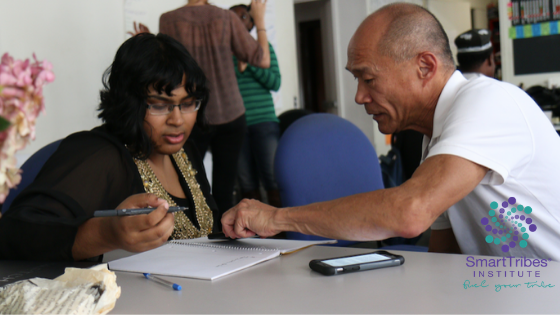Are any of these phrases familiar to you? If so, you may need to brush up on what it means to be a great listener.
“You just don’t understand.”
“How many times do I have to repeat myself?”
“I can’t tell if you’re distracted, or you just don’t care.”
Whether you’re hearing these phrases or saying them, they’re all signs of ineffective listening. And ineffective listening can lead to damaged relationships, inefficient use of time and energy, and silos between key people in an organization. There’s no reason to suffer those consequences when, in reality, it’s not that hard to be a great listener!
Here are three steps to being a great listener.
Step 1: Build Rapport
By building rapport, we make the other person feel safe by giving them the experience that we are the “same as” them. The more safety you provide to another person, the more safety you provide for yourself when interacting with him or her.
This frees up your attention and energy to listen to what the other party is communicating. It also frees up their attention and energy to express what they are truly thinking. Rapport is about caring, not controlling or manipulating.
There are many ways to build rapport. Here are the two we suggest everyone start with:
Physical Body Mirroring.
By mirroring a person’s posture full body position you step into what it feels like to be them. So for example if someone is leaning back and has his arms crossed, you do the same. Always pause before mirroring so that changing your position isn’t rushed or abrasive.
Keyword And Gesture Backtracking.
Mirroring the words a person uses to describe their experience, and the gestures they use too furthers “same as.” If someone says, “I’d like to go the extra mile!”, while slicing the air with their hand—you can respond by gesturing similarly, and backtracking their keywords, “Yes! Let’s go the extra mile.”
(Note: this does not mean paraphrasing—which does not build rapport. Using their keywords is important.)
Step 2: Use the Meta Model
You’ll often hear people use non-specific phrases such as, “I find this task too difficult”. Often, we assume we understand what the person means by “too difficult.”
For a software programmer, “too difficult” might mean they have been asked to develop a better version of Microsoft Word by themselves. For you, “too difficult” might mean you need more time to complete a specific task. We all have our biases.
Key to clarifying what someone means, is to use what’s called the Meta Model in neurolinguistics. The Meta Model helps us see the world from the other person’s perspective, rather than our own.
The most useful Meta Model questions you can use to show you’re a great listener include:
“What specifically?”
“How specifically?”, and
“In comparison to who/what, specifically?”
Given the example we discussed, you could ask the person any of the following questions:
“What specifically is this task, that you find too difficult?”
“How is this task too difficult, specifically?”
“Too difficult in comparison to what, specifically?”
Step 3: Make It Easier For Them To Express Themselves
What we say to someone can make it easier for them to express themselves and feel heard. Key is to first understand the root causes of why ineffective listening and communicating occurs: a lack of the three key emotional experiences of safety, belonging, and mattering.
1. Lack of safety. If the persons in communication do not feel safe, they’ll likely be in Critter State. This can lead to defensive behavior, aggressive interactions, and conflict avoidance. Rather than telling each other openly what they mean—a lot of their attention is directed to making sure they aren’t being harmed emotionally (or physically).
2. Lack of belonging. Without sufficient belonging, people will not care to share what they want to say. And they won’t care to listen to what others want to share either. People want to feel connected to and supported by the people they belong with (colleagues, industry peers, friends, and family).
3. Lack of mattering. If two people communicating don’t make each other feel they are important, and they matter—it’s difficult to feel heard, understood, and respected. People want to know they count, that they make a difference, and are contributing to the greater good.
Safety, belonging, and mattering are essential to your brain and your ability to perform at work, at home, and in life overall. In every communication, we are subconsciously reinforcing or reaching out for more safety, belonging, and mattering.
Try the three above steps and start becoming a great listener. You’ll find your interactions will be more fun (and more fulfilling), as well.








